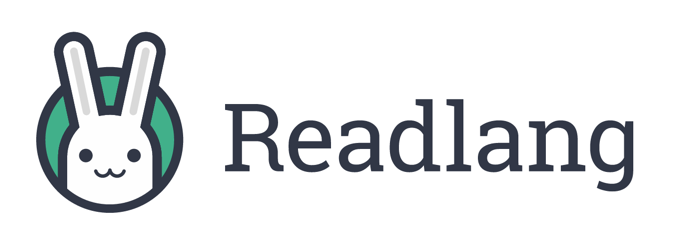If you want to get more "behind the scenes" insight and find out which social networks are my top recommendations for language learners, be sure to download the new Guide to Social Networks from my Fluent Cool Kids Club by signing up here for free..
My Challenge Results
In my main language, Welsh, I spoke more sentences, discovered more native speakers, and added new vocabulary. In other words: HECK YES. This habit does not replace bigger study sessions, but it didn't take away the time for them either. Instead, I spent an effortless extra 3 hours on language learning.
I also found more time for my secondary languages. Currently these are Malaysian and French, and in the challenge I did things for both of them. Just a little bit, but it was there and lets me build onto them. I'm already working on a schedule.
Over the course of the 28 days, I collected short and simple tips that can help anyone get started with language learning on social media. Feel free to try a few of these, or even just to pick one.
Learn when you are busy
We already spend so much time on social media that this isn't a new time demand for most people. In fact, when was the last time you checked Facebook or Twitter? 20 minutes ago? Good! If you can do that, then you will find the language activities very easy. I was able to stick with the plan even on days where I travelled for over 12 hours, or met my whole extended family.
Here are my top tips:
- Mix language tools (flashcards) and social media together
For example, you can add new words you learn on Snapchat to a list on Memrise, or document your Duolingo tree in a Facebook group.
- Edit your newsfeed to stay focused
Are you following someone who tweets more nonsense than helpful things? Edit your newsfeed! You can mute some posts and set up focused lists to help you get there and save time. Twitter is my favourite tool for this.
- Newsfeed a mess still? Make a new profile
I created a language profile on Instagram so that I could stay focused on languages and have a newsfeed that gives me support and motivation. You can do the same on any social network, and most apps now support quick switching.
It pays off in 4 ways
Lanugage learning on social media is not just a way of taking your language skills to the next level. It also keeps you accountable, meaning you will stay motivated and keep going for longer. You will create documentation of how you're doing in languages, allowing you to see and feel progress. And finally, the community of language learners will start connecting to you meaning you make new language loving friends and find more interesting things about your language.
Here's how to get the most out of this:
- Follow teachers, bands and businesses
Social Media for Language Learning is about getting your newsfeed right, so make sure you follow as many useful accounts as you can. Find them by searching for your languages or seeing what's related to people you follow.
- Find existing communities
Every social network has a bunch of great groups that are already talking about your language. Check out Instagram challenges, Twitter chats, subreddits and Facebook groups.
- Avoid hiding your mistakes
When there is something wrong, people like to comment and correct it. This is how you find the best language community online, so forget about looking flawed and start putting your mistakes out there - they're like community bait!
If your followers know what you are working on, they will be more invested in your success and you'll get lovely support messages. This also works for your own motivation, as stating the public goal keeps you more accountable.
Not every social network is great for language learning
In my experience of working through the social media jungle, some apps and websites emerged as stars and others felt like a waste of time. You can read more about my experiences in the special guide to social networks I created for the Fluent Cool Kids Club, which is free to join.
- Organise everyone you follow
On Facebook it's groups, on Pinterest it's boards, on Twitter it's lists. The better your organization, the faster you can find the right people.
- Organise early, but not too often
Invest half an hour at the start to get your lists or groups set up, and then don't worry about it anymore and enjoy the journey!
- Be ok with not being everywhere
Over time, you will realize that some apps or networks feel more like an obligation than a pleasure. The best way for you to find out what works for you is to try the challenges in Lindsay's course. After 28 days, look back and ask what worked best for you - then ditch the duds and stick with your daily practice where it matters!
Oh, by the way: This is fun!
Maybe this all sounds like a lot of hard work, but let me tell you: I had lots of fun with my languages. This way of learning is creative and lets you try out anything such as practice with kids, singing new songs, sharing pets or photos of your books.
Some tips to get more out of this:
- Use apps to go with your apps
The app store is full of great ways to take your photos and words to the next level! You can create images with apps like Wordswag, discover Snapchatters on Ghostcodes, and much more. Simply search your app store for the name of any social network and you'll find new ideas instantly.
- Explore more social networks
No one said you have to stick to Facebook and Twitter! Try language learning networks or look around on the boards of Fluent in 3 Months or Italki for example, or investigate the extra social networks in my new Cool Kids Club guide.
- Use algorithms to find more and more
Once you follow a language learner, the social network will learn what kind of people and topics you're interested in. Wait a few minutes, and watch your newsfeed transform into a language class like no other!
At the end of every week, you should spend 30 minutes on a review for new words and lessons. Here's what I did:
- Review your liked/saved posts
On most social networks, you can access a list of everything you've "Liked" so that you can use this as a bookmark system and work through it once a week as you review the best of the week.
The easiest way to find out vocabulary for "post", "comment", "tweet" etc is to switch the user language in your social network.
- Add your new words to a separate vocab list
Every week, it pays to invest a little bit of time to take all those new posts and words out of the internet and put them into your notebook, flashcards, and, ultimately, brain.
Building habits is not the same as doing an intensive challenge, but this investment of your time in "little and often" will pay off. Use a diary, a tracker or follow the Social Media Success schedules so that you don't give up halfway through. The goal here is to start a daily language practice, not to become fluent in a short time!
So here's the conclusion: Social Media for Languages is something you should try - immediately! It won't take a lot of time, and it will pay off for sure.
What are your thoughts? Leave a comment here and tell me what worked for you and which social network you use all the time.
And don't forget that my free guide to ALL social networks is waiting for you in the Cool Kids Club!









